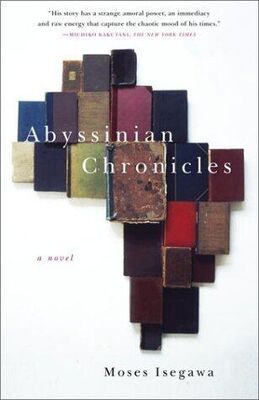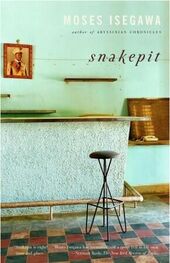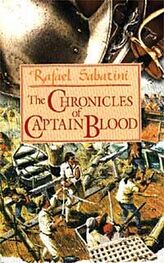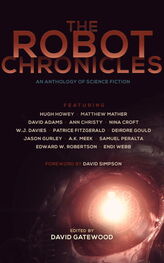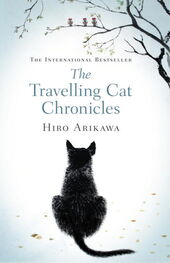Summers were the worst time of the year: the whole white world came crashing onto my head. I was often the only black person in the hotel, in the park. I started seeing ghosts of the Infernal Trinity in unexpected places, with rifles cleverly concealed under their robes. I started seeing Lageau behind counters, in restaurants, at the beach, preaching his monkey sermon through his thin monkey lips. The past was mingling with the present and contaminating the future with its sly poison. The sexual side of racism disgusted me: there were some women who, when they saw us together, reacted as if I desired them all and could hardly wait to rip off my clothes in public to assault them. This poisoned my thought processes and soured my mood, because most of these women were quite unattractive, too thin, too pale, too fat, too flat or too old for my liking. Maybe there were men who desired them madly; I was not one of them. I was mostly thinking about books and how hard it was to capture the essence of the past, but suddenly there I would be, imagining I was Lwendo, fully armed with a machine gun and the license to kill without compunction. I knew right then that the coffin for our affair was lying open. I was not going to sacrifice sanity for a white woman, or anybody else for that matter.
The white world invaded our nights. At the beginning, we had made love with the fire of sizzling passion. We strangled and burned demons from the past with the relentlessness of youthful energy. It struck me that in a bathysphere, where love would be assaulted by the waves in vain, we would have lived happily ever after. In the real world, love was a feeble thing, terrorized by the sun and washed away by the rains. The line on the sexual graph fell drastically. I would lie there and think of Cane’s brown-labiaed nudes and feel sick with disgust. I had quickly graduated to the knowledge that it was not she and me against the world.
My past of raiding and defeating bigger enemies had taught me to be discreet, cunning, elusive, solitary. The fact that the enemy could strike so casually, with a look or a negative gesture, wore me down. Most of my enemies were smaller than me physically, psychologically and mentally. There was no fun in engaging them, and I could not plan raids. The man who had flattened the mighty Lageau felt impotent. It was a fact that when I went out alone, everything was fine, but when we went out together, it was hell. I hated the visibility Magdelein accorded me. I hated the fact that I could not discover the world peacefully and dream and redream it at all times. Like Serenity, I knew when I was defeated; all that remained was to end it. Like Uncle Kawayida, I was not going to bicker.
I attacked the Dutch language course like a madman. I attacked the subsequent job course with the same zeal. I was among the few black people who got a decent job. I missed the gory disinterments, but I had to move on. I got a job with a large weekly magazine. I was not a journalist, but I was near where words were beaten into weapons, and I was gradually forging mine.
There were many things I never told Magdelein — mood-souring experiences in town, for example. I would return home and keep quiet, happy to fight my own wars. I discovered later that she kept a diary, which was almost exclusively about me. One day I took a look at it and felt like throwing it in the fire. To me, life was lived day by day, and the actions of yesterday might have nothing to do with what happened the following day. Life was a journey of discovery, and character was a variable that kept veering left and right in search of the perfect way for a particular day. To Magdelein, character was unchanging, life a balance sheet to be rigorously monitored. I realized that the union between a fastidious banker and a free spirit with piratical proclivities was fraught with danger. In this respect, I preferred Eva, with her ego-maniacal tendencies. With sweat trickling down my back, I read: Jay — as she called me — has changed … Jay moody … Is Jay still interested in us?… Jay drank tea with milk … Jay talked for thirty minutes with somebody in the ghetto. I didn’t understand a thing, because it was all in his language: Luganda. Jay hasn’t touched me for … Is some old ghetto flame beckoning in the background …? I bought Jay a fifty-dollar tie. He did not appreciate it, saying it was a waste of money …
We had a row. She accused me of not paying sufficient attention to her. I accused her of monitoring me like a spy. She said she refused to be ruled by bigots and insisted that we go out more frequently, hold hands, kiss in public and make them suffer. I refused. Billboard intimacy had never been my thing and never would be. She questioned my motives. I said I was tired of the pressure. She said we would win. I said I did not want a pyrrhic victory. She ran out of the house and came back with a packet of cigarettes. She lighted one and smoked it clumsily. I said I did not like the smell of cigarettes, and that it was bad for her health and her breath. She said she was free to do what she wanted. I agreed. The damage had been done. The tears didn’t mend the rift. I was determined to go out and be my own man. She was determined to change me and still be her own person. It could not work.
I left on a beautiful spring morning. She looked like a puppy fished out of a pot of porridge. I looked like a pirate thrown off a ship.
I returned to Central Station, sat with my bags at my feet and watched the multitudes. The sun was shining, doves were fluttering about, three youths were banging out a rock tune on scuffed instruments. I tapped with my left foot. Half-naked youths were watching, travellers streaming past, trams rumbling. People of all nations and colors poured into the great city like ants streaming toward predestined locations in subterranean tunnels. As I looked, my head began to spin: I was getting dizzy. People seemed to be walking upside down, the dead rising from their graves, the living diving into fresh graves. There was motion and inversion everywhere: the invaders were being invaded, the partitioners being partitioned, the penetrators getting penetrated. The mixing and juxtaposition of peoples became mind-blowing, the destinations and points of departure mythic. I held on to the cement bank in order to stop myself from spewing or getting spewed. I had found myself a stone to lay my head on, an enchanted hilltop made of boulders from all the corners of the globe. I was back in my element: watching, planning, waiting for the right time to strike. Abyssinia was on my mind; so was my new foothold on this precipitous hilltop. It has always been a Herculean task for Abyssinians to get their foot in the door, but once in, they never budge. I was in.
My book has been fertilized by other books, among which the following deserve a special mention. Uganda Now, by Holger Bernt Hansen and Michael Twaddle, and Lust to Kill: The Rise and Fall of Idi Amin, by Joseph Kamau and Andrew Cohen, helped me to deal with the chaotic events which I and many people I knew experienced during the years before and after the fall of Idi Amin. Mahmood Mamdani’s From Citizen to Refugee shed light on the fate of the Indians in Uganda.
